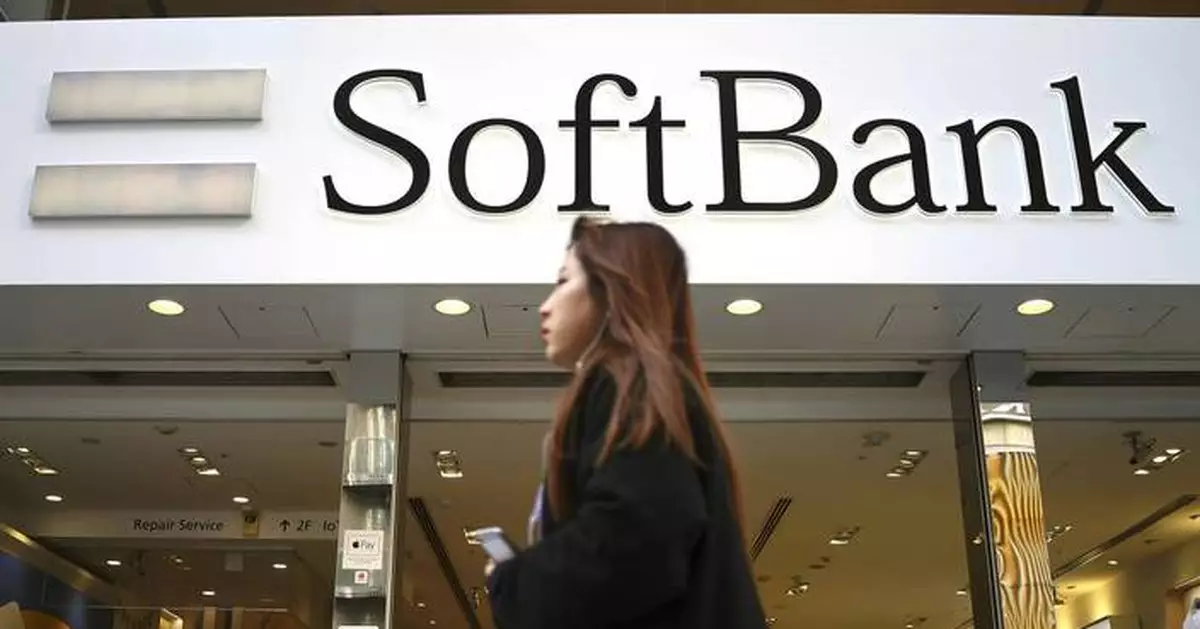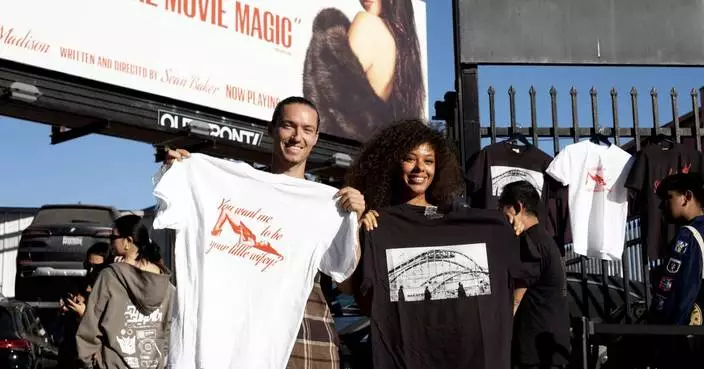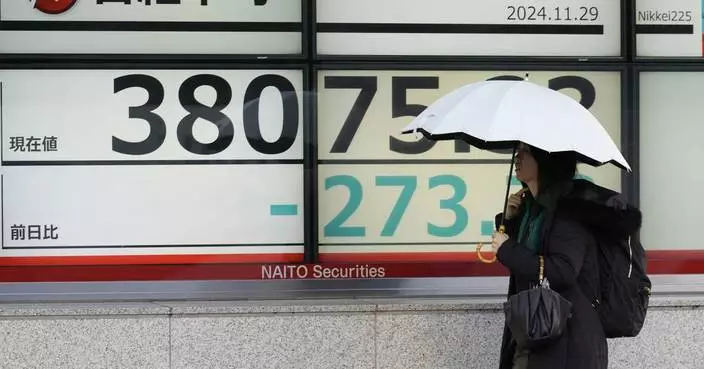TOKYO (AP) — SoftBank Group trimmed its losses for the fiscal year through March to about a quarter of the red ink it racked up a year earlier, as its investment losses declined, the Japanese technology company said Monday.
Annual sales at Tokyo-based SoftBank Group Corp. rose 2.8% to 6.76 trillion yen ($43 billion). Losses for the fiscal year sank to 227.6 billion yen ($1.5 billion) from a 970 billion yen loss in the previous year.
By quarter, SoftBank Group, which invests in artificial intelligence, robotics, autonomous driving and other technology, recorded its second straight quarterly profit, at 231 billion yen ($1.5 billion) for January-March, a turnaround from a 57.6 billion yen loss a year earlier.
Its two latest quarters in the black followed four straight quarters of losses.
Investment losses for the fiscal year included Alibaba, a Chinese technology company with e-commerce, cloud computing and digital media operations, which offset gains from its holdings in T- Mobile.
The value of British semiconductor and software design company Arm, a SoftBank subsidiary, has surged in recent months, but that wasn't reflected in the earnings results. Arm listed on the Nasdaq last year.
In its SoftBank Vision Fund of investments, some shares lost value. Among them was WeWork, a provider of shared work spaces, which filed for Chapter 11 bankruptcy protection last year. Such minuses were offset by gains from other holdings, like ByteDance, the Chinese owner of the popular video-sharing app TikTok.
SoftBank, led and founded by billionaire visionary Masayoshi Son, also invests in Yahoo Japan and Line. Son is expected to make his pitch for the future of AI at the shareholders’ meeting later this year, although he skipped the earnings presentation.
When a reporter asked why Son wasn’t present, Chief Financial Officer Yoshimitsu Goto said Son was busy focusing on new efforts in what the company is calling “the AI age.”
Overall, from their inception, the SoftBank Vision Fund 1 has logged a gain of $16.7 billion, while SVF2 has lost $19.3 billion. Both funds racked up losses for the fiscal year that ended in March.
Goto stressed the early hard years were now over for Vision Fund investments, and they're expected to become stable.
“The performance will improve in a big way,” he told reporters.
Yuri Kageyama is on X: https://twitter.com/yurikageyama
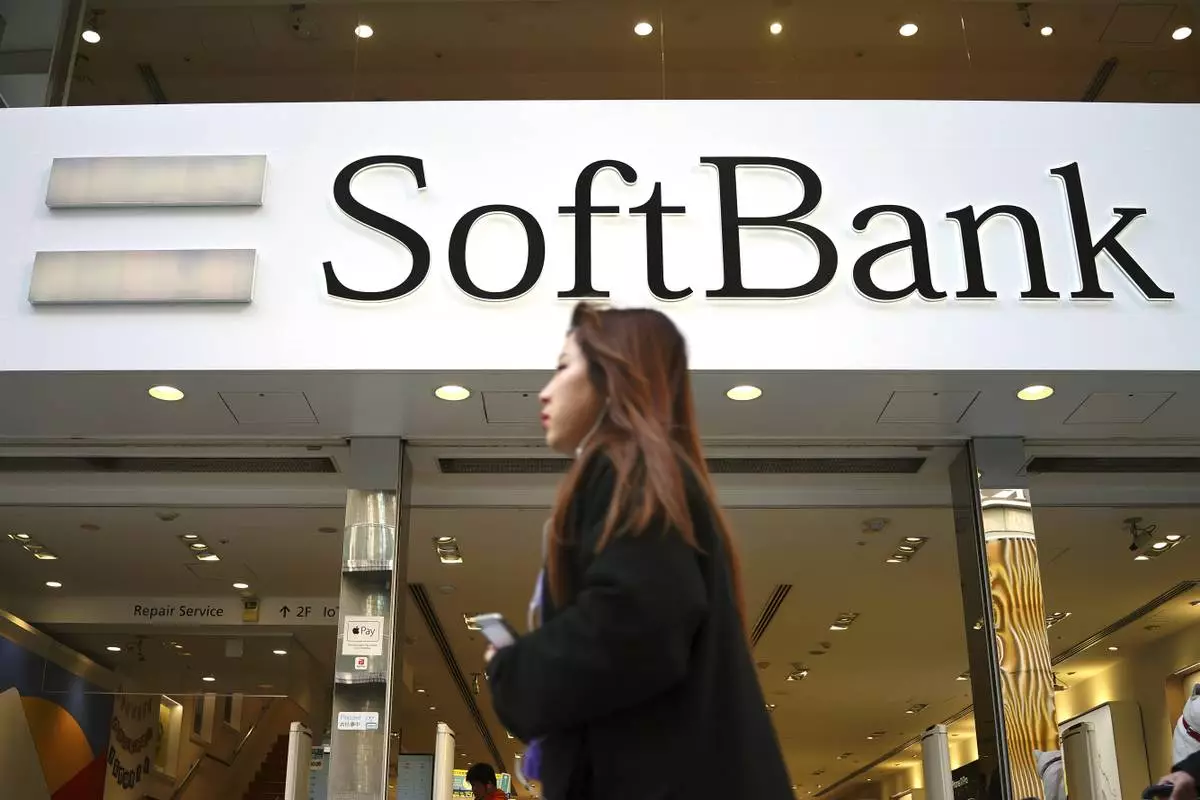
FILE - A woman walks in front of SoftBank store in Ginza shopping district in Tokyo, Jan. 20, 2020. SoftBank Group trimmed its losses for the fiscal year through March to about a quarter of the red ink it racked up a year earlier, as its investment losses declined, the Japanese technology company said Monday, May 13, 2024. (AP Photo/Eugene Hoshiko, File)
Jack Ma, founder of Alibaba Group Holding, on Friday visited the company’s campus in Hangzhou, capital of eastern Zhejiang province, in a show of support for the e-commerce empire he created a quarter of a century ago, according to employees.
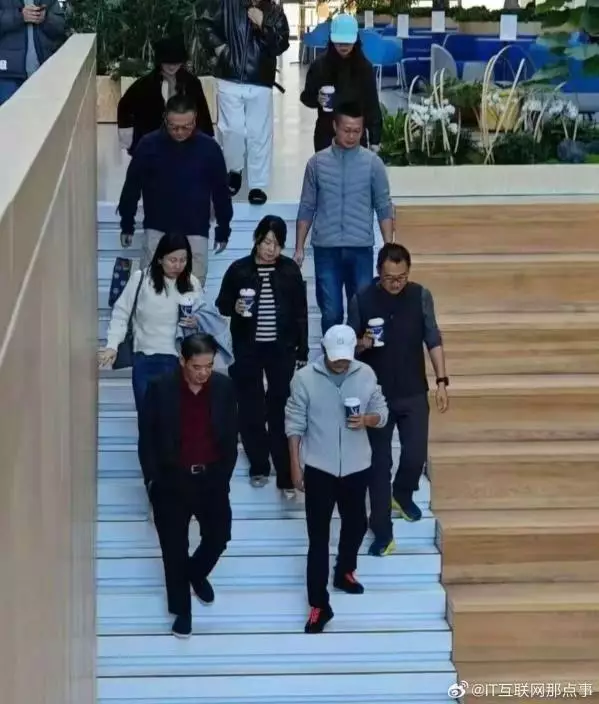
Jack Ma returns to Alibaba campus. Source from weibo
Ma’s visit was his first known trip back to to his hometown since March 2023, when the billionaire visited a school that he established. While Ma resigned as Alibaba’s executive chairman in 2019 and has kept a low profile since 2020, he remains widely seen as the spiritual leader of the company and the face of Chinese entrepreneurship.
His low-key visit to Alibaba’s campus comes at a time when the Chinese government is trying to boost confidence in the country’s private sector, as the world’s second-largest economy grapples with a slew of challenges, ranging from a persistent property market downturn to renewed geopolitical headwinds after US president-elect Donald Trump threatened to levy additional tariffs on Chinese imports.

Jack Ma returns to Alibaba campus. Source from weibo
In a photo taken by an employee on site and shared with the South China Morning Post, a smiling and relaxed Ma, wearing a white cap, was seen waving to staff.
Alibaba, owner of the Post, did not immediately respond to a request for comment on Friday.
Ma’s appearance comes a week after Alibaba announced its largest internal adjustment after implementing a corporate restructuring in early 2023 that carved up its sprawling business empire into six units.
In its latest revamp, Alibaba merged its domestic and overseas e-commerce operations into one unit, furthering its effort to seek greater synergy across its domestic and international supply chains amid intensifying competition with rivals such as Pinduoduo owner PDD Holdings.
Ma in September called on Alibaba employees to “believe in the future” and “believe in the market”, as the company faced fierce competition on multiple fronts.
According to his letter published on Alibaba’s internal website on September 10, marking the 25th anniversary of the group’s founding, Ma said many of the company’s businesses face the prospect of being surpassed amid the “resurgence of … technology and fierce competition in various industries”.

Jack Ma returns to Alibaba campus. Source from weibo
“This is expected, as no company can always stay on top in any field forever,” wrote Ma. “We must constantly [be reminded] not to lose ourselves” amid the competitive pressure. He said Alibaba is made of “an idealistic spirit”, which means that “we believe in the future, we believe in the market”.
In its September-quarter financial results, Alibaba’s income surged 58 per cent to 43.9 billion yuan (US$6 billion). Revenue rose 5 per cent to 236.5 billion yuan.
Alibaba is also doubling down on artificial intelligence (AI). The September-quarter revenue from the Cloud Intelligence Group, one of the company’s most important growth engines, rose 7 per cent to 29.6 billion yuan.
“Growth in our cloud business accelerated from prior quarters, with revenue from public cloud products growing in double digits and AI-related product revenue delivering triple-digit growth,” Alibaba chief executive Eddie Wu Yongming said in a statement.
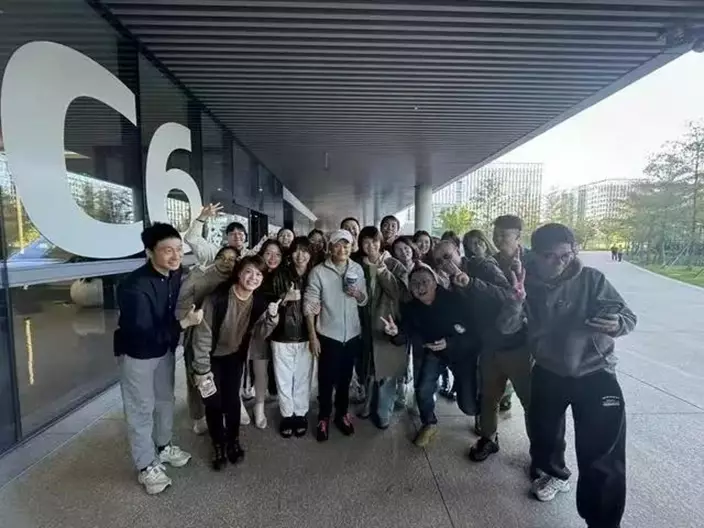
Jack Ma returns to Alibaba campus. Source from weibo
Alibaba shares rose slightly on Friday to close at HK$83.65. The shares, however, have fallen by more than two-thirds from their peak in late 2020.
Ma and Alibaba co-founder Joe Tsai are currently the two largest shareholders of the e-commerce giant, after they aggressively scooped up its tumbling shares in New York and Hong Kong. Ma bought about US$50 million of shares in the fourth quarter last year, raising his stake beyond 4.3 per cent at the end of 2021, making him the largest single shareholder.



